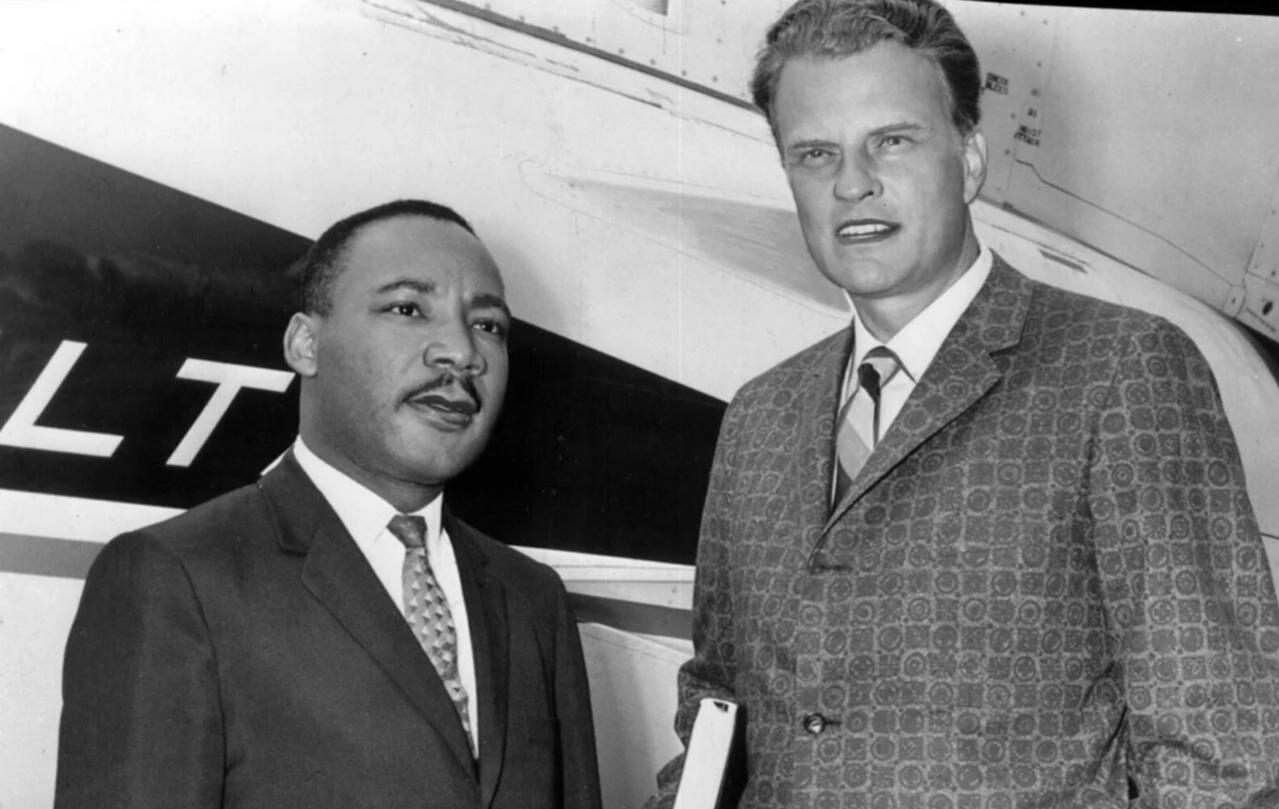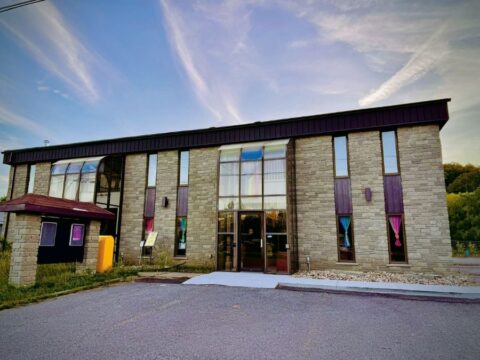(RNS) — As we have remembered Martin Luther King Jr. and his contributions to the civil rights movement of the 1950s and 1960s each January, our memory of him has blurred to the point it obscures much of his actual thought. In a seminal 2005 essay, Jacquelyn Dowd Hall wrote that King has been “endlessly reproduced and selectively quoted, his speeches retain their majesty yet lose their political bite.”
Specifically omitted from popular memory are some of the more “radical” elements of King’s message — democratic socialism, ending the war in Vietnam, nuclear de-escalation, a Poor People’s Campaign to force the federal government to address systemic poverty, and support of a sanitation workers’ strike in Memphis when he was killed.
You may unsubscribe from any of our newsletters at any time.
For many, he has become the “quotable King,” his entire message reduced to his dream that his children would “not be judged by the colour of their skin but by the content of their character.”
In the same way, we have softened in our social memory how strongly many white evangelical Christians — even those deemed socially and politically “moderate” — opposed King.
King saw an indissoluble link between the Christian faith and the responsibility to change unjust laws and policies. But his emphasis on the social dimensions of Christianity, especially regarding race relations, angered many white evangelicals at the time. They considered race relations a purely social issue, not a spiritual one, and tended to believe the government should not force people of different races to integrate. Some, of course, thought racial segregation was a divine declaration and defended the practice using the Bible.
Decades after his death, white evangelicals finally came to recognize King’s contribution to American democracy and biblical justice. But during his lifetime, a large segment of the American church derided King and other activists and even resisted the aims of the civil rights movement.
The evangelist Billy Graham represented the moderate white evangelical position well. Christian commentators today make much of Graham’s gestures of support for Black civil rights, remembering the time in 1953, at an evangelistic crusade in Chattanooga, Tennessee, when Graham personally removed the ropes dividing white and Black attendees. Four years later, he invited King to give the opening prayer at one of his rallies, an invitation King accepted.
More on Broadview:
- MLK’s last Sunday sermon is as relevant today as it was in 1968
- If the U.S. Capitol attack surprised you, you weren’t paying attention
- Is George Floyd’s death the start of my daughter’s ‘Black list’?
Yet as the civil rights movement continued and King led more demonstrations, Graham advised King and his allies to “put on the brakes.” Though Graham did more than many of his fellow Christian leaders, he never made any bold public proclamations of solidarity with Black citizens, and decided against demonstrating alongside activists in the March on Selma, a move Graham later said he regretted.
Like the white moderates King wrote about in his letter from jail, who paternalistically feel they can “set the timetable for another man’s freedom,” Graham never relented from the belief that “the evangelist is not primarily a social reformer, a temperance lecturer or a moralizer. He is simply a keryx, a proclaimer of the good news.”
While a resident of North Carolina, Graham claimed membership at First Baptist Church of Dallas, at the time, the largest congregation in the Southern Baptist Convention, and had great respect for the church’s pastor, W.A. Criswell.
Criswell was a magnetic preacher, but he had a dim view of the civil rights movement and of activists like King. When officials invited Criswell to preach at an evangelism conference for the South Carolina Baptist Convention in 1956, he called desegregation “a denial of all that we believe in.” He went on to say Brown v. Board was “foolishness” and an “idiocy,” and he called anyone who advocated for racial integration “a bunch of infidels, dying from the neck up.”
Criswell moderated some of his stances later in life, but not before thousands of Christians in his own congregation and tens of thousands more of his followers nationwide had absorbed his views of civil rights and activists like King.
As time went on, efforts to give King a hearing in white evangelical forums were rejected. In 1961, King spoke at the Southern Baptist Theological Seminary, the SBC’s flagship seminary, at the invitation of a professor. Powerful Southern Baptists opposed his visit.
As historian Taylor Branch wrote in his biography of King, “Within the church, this simple invitation was a racial and theological heresy, such that churches across the South rescinded their regular donations to the seminary.”
Even at his murder, some white evangelicals viewed King as an agitator whose presence they were glad to be rid of.
We have softened in our social memory how strongly many white evangelical Christians — even those deemed socially and politically “moderate” — opposed King.
In his book Reconciliation Blues, writer Edward Gilbreath relates the experience of a Black college student named Dolphus Weary at a predominantly white Christian school in the late 1960s. Weary had received the offer of a spot on the basketball team through the persistent efforts of an admissions director.
Weary, who was raised in rural Mississippi, attended Los Angeles Baptist College, now known as The Master’s University. Weary was one of the first two black students at the school, and at first it was a positive experience. He earned good grades and helped lead the basketball team to a 19–5 record that season.
On April 4, 1968, a white classmate ran up to Weary and asked whether he had heard the news about Dr. King. Weary went back to his room and turned on the radio to get an update. He was “devastated” to hear King had been shot. As he sat in his room he could hear his white peers down the hall, laughing.
Then came the awful news King was dead. As soon as commentators reported this news, the young black man “could hear white voices down the hall let out a cheer.”
Reflecting back on this experience, Weary said, “Laughing at Dr. King’s death was just like laughing at me — or at the millions of other blacks for whom King laboured.”
Remarkably, Weary did not let the hate of others consume him. He has spent his life working for racial reconciliation in his home state, Mississippi.
The Gospel of John says, “A prophet has no honour in his own country.” We might extend it: A prophet (or truth-teller) has no honour in his or her own time.
If white evangelicals or anyone else wish to learn from MLK’s legacy, then they will ask who the modern-day prophets of racial justice are and whether they are willing to listen right now or will they honour the wisdom of these voices in the wilderness only after they die?
(This article is adapted from Jemar Tisby’s “How to Fight Racism: Courageous Christianity and the Journey toward Racial Justice.” Contact him @JemarTisby. The views expressed in this commentary do not necessarily reflect those of Religion News Service.)















In the same way, we have softened in our social memory how strongly many white evangelical Christians — even those deemed socially and politically “moderate” — opposed King.
This may or may not be true, but since the ’50’s and ’60’s – we have softened in our social memory how strongly many white evangelical Christians — even those deemed socially, Spiritually and politically “moderate” — oppose Christ.
This is now being reflected in our culture, and God is turning His back against us.
The author does not name the contemporary prophets we ought to be hearing. Perhaps its not voices only on the the progressive left but also voices of the growing number of influential Black American conservatives who cogently argue that it is the destruction of the Black family that is the greatest social peril to Black Americans today and not systematic racism. I am interested in hearing from them as well in this paper which presumes to represent the constituency of the whole UCC. On Billy Graham- the author is correct. But consider the year. It took great courage for Graham in 1953 to publicly announce that in at least a few of his his crusades that there should be desegragation between whites and blacks in the audience. This was a ground breaking precedent that rocked the whole evangelical galaxy! A new generation of evangelicals like Jim Wallace picked up the prophetic mantle and carried it well. That is called progress. To widen the historical lens of this article slightly narrow focus there are accounts of at least one very powerful and Black evangelical preacher – Elder Lightfoot Solomon Michaux. He opposed MLK’s strategy and even worked with the FBI to undermine him. It seems that Kings enemies crossed the racial divide. Such was the fuller tumult of the 60s when MLK became not only the voice of the people but the very voice of God. It has been nearly 60 years since the civil rights Act was signed in 1964. Surely there has been some progress made. But we would need to get a fuller and more balanced historical account than this article provides.